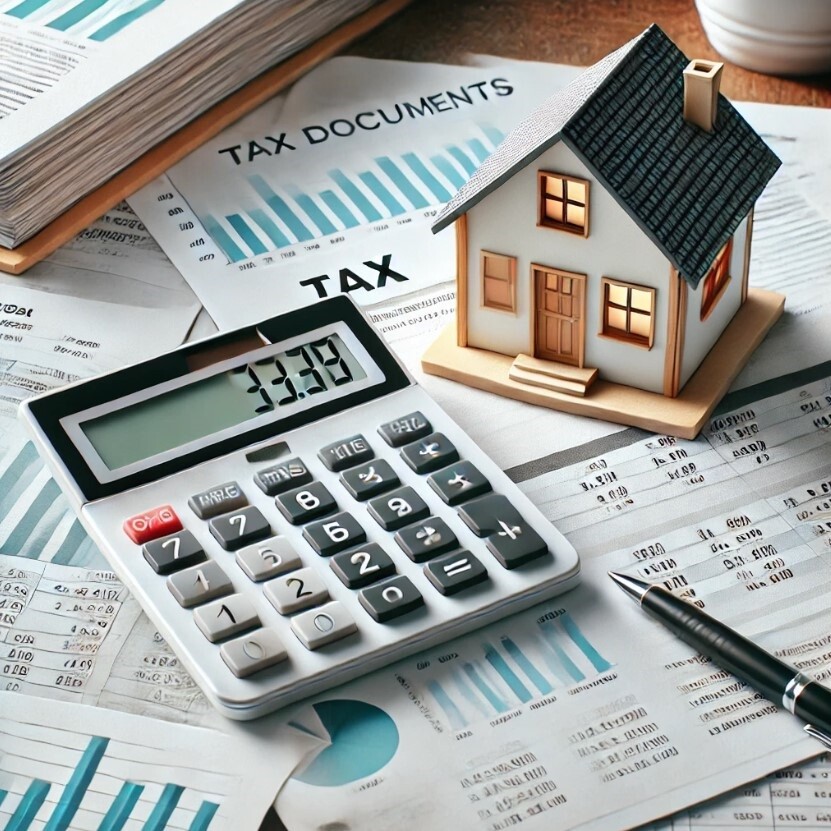How to Buy a Rental Property in 2026 & What to Know Before You Invest
When you're searching for a strategy that will help you save for retirement and build your wealth, look no further than real estate investing. If you...
8 min read
Rent To Retirement : May 19, 2025 12:00:00 AM

If you’re looking to buy an investment property, good news! There are several financing options you can use to help fund your purchase. But what type of loan is best for investment property? In this article, we’ll share seven top options for real estate investors, the steps for getting an investment property loan, and common requirements you’ll need to meet!
Summary:
|
Loan Type |
Down Payment |
Pros |
Cons |
|
Rent to Retirement’s 5%-Down Loan |
5% |
Can be used to buy multiple rental properties, Significant discounts, Used for turnkey properties |
Only available on select new builds |
|
Conventional Loan |
3%-5% (if owner-occupied); 15%-20% (for investment properties) |
Accepted by most sellers, Lower interest rates with good credit |
Higher down payments for regular investment properties, PMI (Private Mortgage Insurance) required for <20% down |
|
Debt Service Coverage Ratio (DSCR) Loan |
Varies (higher than conventional) |
Relies on projected rental income, Potentially no personal income verification, Often faster approval process |
Higher interest rates, Risk of overleveraging |
|
Veteran Affairs (VA) Loan |
0% |
No down payment, No PMI, No minimum credit score, Can be reused, Foreclosure protection |
Can only be used for primary residence or house hack, Only available to veterans and service members, One-time VA funding fee |
|
Federal Housing Administration (FHA) Loan |
3.50% |
Lower down payments, Lower credit requirements, Often more flexible with debt-to-income ratio |
Can only be used for primary residence or house hack, Property must meet FHA guidelines, Must pay MIP (Mortgage Insurance Premium) for entire term |
|
Seller/Owner Financing |
Negotiable |
Negotiable terms, Fewer credit/income requirements, Often faster, Often fewer fees |
Potentially higher interest rates, Harder to obtain (must convince seller), Often shorter terms |
|
Private/Hard Money Loan |
Varies (usually high) |
Negotiable terms, Often faster, Flexible lending criteria |
Higher interest rates, Shorter terms |
There are many reasons to buy an investment property! You can create an additional stream of income, such as real estate cash flow, but you can also play the long game and allow your property to appreciate as home prices rise.
There are also all kinds of tax benefits available to real estate investors, including depreciation and other deductions. What’s more, buying a piece of real estate can help diversify your portfolio, and you can use debt (leverage) to purchase it!
Rent to Retirement has rental properties in high-cash-flow, high-appreciation markets!
There are investment loans for all types of properties and investing strategies—buy and hold rentals, fix and flip projects, and others. You can get one of these mortgages by talking to a lender—whether it’s a bank, credit union, or another financial institution—applying and submitting documents, getting an appraisal, and closing!
Just keep in mind that investment property loans tend to have more stringent requirements and higher down payments than most owner-occupied mortgages.
What type of loan for investment property should you get? Here are several options to consider:
Do you want to buy a brand new, turnkey property with low money down? Most investment properties require a 15%-25% down payment, but Rent to Retirement has loan options for new builds that require just 5% down.
You could also qualify for a price reduction of up to $50,000. Put this toward your purchase price or get cash back at closing to buy your rental property with essentially no money down! What’s more, these loans can be used to buy multiple rental properties, giving you an even faster path to building and scaling your portfolio.
There are several reasons to go with Rent to Retirement’s 5%-down loans:
Despite its many benefits, this loan does have a limitation:
Build an entire portfolio of rental properties with our 5%-down loans!
A conventional loan is the most common type of mortgage and is offered by many lenders. You’ll need a credit score of at least 620 to qualify (higher if you want a better interest rate), and you’ll most likely need to put 15%-20% down.
If you use the house hacking strategy—renting out part of your property while living in it—you could put as little as 3% down! The catch? You must live in the property for at least 12 months unless your life circumstances change and require you to move. Otherwise, your loan could become due, or worse yet, you could incur penalties for mortgage fraud.
Many investors prefer conventional loans for the following reasons:
Keep the following trade-offs in mind if you’re getting a conventional loan:
With a DSCR loan, you are qualified based on the rental income the property will bring in rather than your personal income, credit, or debt. Depending on the property, you could borrow a much larger amount than you would be able to otherwise. Because lenders don’t get into the weeds with your personal finances, you could potentially get approved faster, too!
DSCR loans are popular due to the following benefits:
Before getting a DSCR loan, make sure you’re aware of these potential disadvantages:
Skip the high down payments! Buy your first or next rental with just 5% down!
If you’re a veteran or service member, you could qualify for one of the best investment loans available—the Veteran Affairs loan! These mortgages have no down payment, private mortgage insurance, or minimum credit score requirements. Keep in mind that this loan can only be used to purchase an investment property if you live there for a minimum of 12 months.
If you’re a current or former service member, you’ll love the VA loan for these reasons:
VA loans aren’t for everyone. Some potential drawbacks include:
FHA loans are government-backed mortgages that are insured by the Federal Housing Administration. These loans are especially popular among new buyers, as they have less stringent requirements than other loans. You could qualify for an FHA loan with a credit score as low as 580 and a down payment of just 3.5% if you occupy the property for at least 12 months.
FHA loans appeal to many as they provide the following benefits:
There are also a few downsides to FHA loans:
Seller financing is an arrangement where the seller provides financing to the buyer. The two parties have full control over the length, down payment, interest rate, and terms of the loan, and depending on how quickly both sides move, this could allow you to close on the property much faster. If the seller agrees, you could bring very little money to the closing table, if any!
Seller financing deals offer the following benefits:
Be mindful of the following disadvantages when doing a seller finance deal:
A private money loan or hard money loan is an arrangement between a buyer and a third party that agrees to fund the purchase of your investment property. These loans are more flexible than most traditional bank loans, but they also have shorter terms that often range from a few months to a few years. There is typically a balloon payment at the end of the term, at which point you’ll need to make the lender whole or refinance.
Don’t want traditional bank financing? A private or hard money loan provides the following:
Weigh these potential pitfalls before diving into a private or hard money agreement:
Need financing for your next investment property? Follow these simple steps:
Look for a lender who specializes in financing for investment properties. Rent to Retirement has investor-friendly lender connections throughout the country!
Ask about our 5%-down loans and discounts on new builds!
Unless you’re applying for a DSCR loan, most lenders will want to see W-2 forms, tax returns, bank statements, and other income and asset documents. Gather these documents before you apply!
A pre-approval letter tells you exactly how much money you can borrow and shows sellers you’re serious. Once you’re pre-approved, you’ll be able to start making offers on investment properties!
Analyze any property you’re considering to ensure it’s a good investment. Once you find a property you love, make an offer, and get it under contract!
Your lender will require an appraisal to assess the property and determine its fair market value. Ideally, the property will be worth more than the amount of your loan, otherwise, closing could be delayed.
You’re ready to close! Bring your funds to the closing table and sign the loan documents to make things official!
While requirements vary from lender to lender, here are a few general requirements for getting an investment property loan:
Unlike primary residences, most investment properties require you to put roughly 15%-25% down. There are a few exceptions, though, including VA loans (0% down), house hacking (3%-3.5% down), and Rent to Retirement’s 5%-down financing for new builds!
Most lenders require you to have a debt-to-income ratio of around 43% or lower. To calculate your debt-to-income ratio, tally your monthly debt payments, divide the amount by your gross monthly income, and multiply the new figure by 100.
Is your debt-to-income ratio too high? You could get a DSCR loan instead, which would use the property’s projected rental income, rather than your personal finances, to qualify you.
Many lenders require you to have a credit score of at least 680. You could get approved with a lower score, but you’ll likely need to put more money down or take a higher interest rate.
Many lenders require you to have up to six months in cash reserves. This ensures that you have enough money on hand to cover several mortgage payments if something goes wrong!
Unless you qualify for the VA loan or plan to use the house hacking strategy, there aren’t many opportunities to put low money down on an investment property. This is why Rent to Retirement’s 5%-down financing is one of the best loan types for investment property. You can put low money down when purchasing a new build, and you can even get a discount of up to $50,000 to put toward your purchase or receive as cash back!
Check out our wide selection of turnkey rental properties for sale today and take advantage of this rare opportunity!
While 30-year fixed-rate mortgages are the standard, the best loan term will depend on the property, your investing goals, and your specific financial needs. The shorter your term, the faster you’ll pay off your loan, but you’ll have a higher monthly mortgage payment.
Most investment properties require a 15%-20% down payment, but there are a few strategies you can use to put less money down. Rent to Retirement allows you to put as little as 5% down on select new builds, and house hacking a rental property allows you to put as little as 3% down. If you’re a veteran or service member, you could get a VA loan and put 0% down!
Investment property loans are a little harder to get than regular mortgages, typically because they have higher down payment requirements. As long as you have enough money to put down, solid credit, income history, and the right debt-to-income ratio, you could qualify!

When you're searching for a strategy that will help you save for retirement and build your wealth, look no further than real estate investing. If you...

Many people invest in real estate for its enormous tax benefits. Unfortunately, too many investors squander their potential tax savings by following...

Many people invest in real estate for its enormous tax benefits. Unfortunately, too many investors squander their potential tax savings by following...